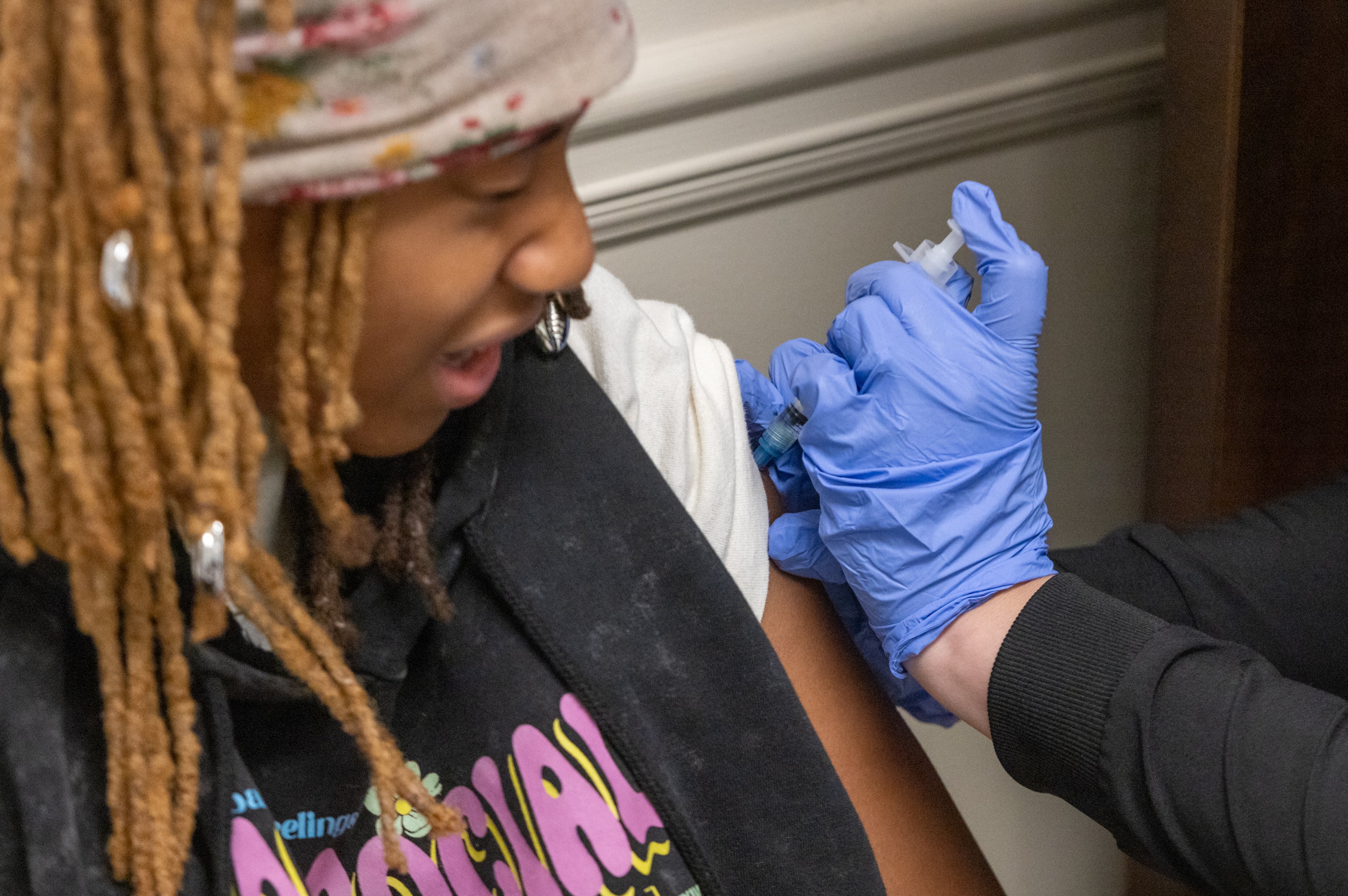Billionaire investor praises Atlanta’s business growth, opportunity

Billionaire technology investor and philanthropist Robert F. Smith said he doesn’t subscribe to Mayor Andre Dickens’ adage that Atlanta is a city that punches above its weight class.
“Atlanta,” Smith said, “is heavyweight class already.”
Smith became a popular figure in the city in 2019 when he surprised Morehouse College’s 2019 graduating class in a commencement speech by announcing he would pay off their student loan debt, a pledge gift that reached $34 million, according to Morehouse’s website. He spoke to the Rotary Club of Atlanta on Monday afternoon, and Dickens provided his introduction.
Smith, founder and chief executive of Vista Equity Partners, praised Atlanta, saying the metro area has a strong and diverse workforce and driven entrepreneurs, all factors in his firm’s decision to move companies into the area.
Morehouse President David A. Thomas directed the discussion with Smith and noted that while many point to Atlanta’s diversity as a strength, businesses, government and schools are facing scrutiny over diversity, equity and inclusion initiatives. Smith said diversity is good for business.
“I’m focused on hiring the best people on the planet I can hire. ... That’s what you actually get when you cast a wide net,” he said.
Smith spoke at length about artificial intelligence, saying generative AI is going to “evolve rapidly, somewhat exponentially over the next few years,” calling it “more powerful than anything we’ve ever seen before.”
He advised attendees to brace for change because the technology will affect industries, inevitably creating and eliminating jobs.

“It is up to us to teach and train and develop our students at these fine universities to understand this is just another tool,” Smith said. “We have to continue to evolve in our ability to use these tools effectively for the benefit of the communities we care about.”
Smith’s follow-up to paying off the Morehouse graduates’ loans was the Student Freedom Initiative, which is helping historically Black colleges and universities get full broadband access and update their cyber capabilities to access funding for which some did not previously qualify. The initiative also includes an alternative loan system.
Smith compared his philanthropy in education to advocacy he saw from his father in a segregated community in Denver. When it snowed, the city didn’t service their streets, preventing people from getting to work. Smith’s father organized residents, forming a group that plowed a strip of roadway clear so they could drive out.
“Go solve a problem you can uniquely solve for the community that you care about,” Smith said.
Attendees of the Rotary meeting said it was exciting to hear Smith speak highly of Atlanta. Wayne Martin said leaders here know about the city’s value in the national and global technology ecosystem, and Smith reaffirmed that notion: “Robert Smith says that, the rest of the world hears it.”
Martin said the metro area also needs to invest in its families, health and housing so people are able to participate in and help drive the opportunities described by Smith.
Former Atlanta City Council President Ceasar Mitchell emphasized the importance of schools: “Local communities have to see education as a ministry,” he said, calling education a perpetual investment, not a single effort to address a problem until a perceived endpoint.


